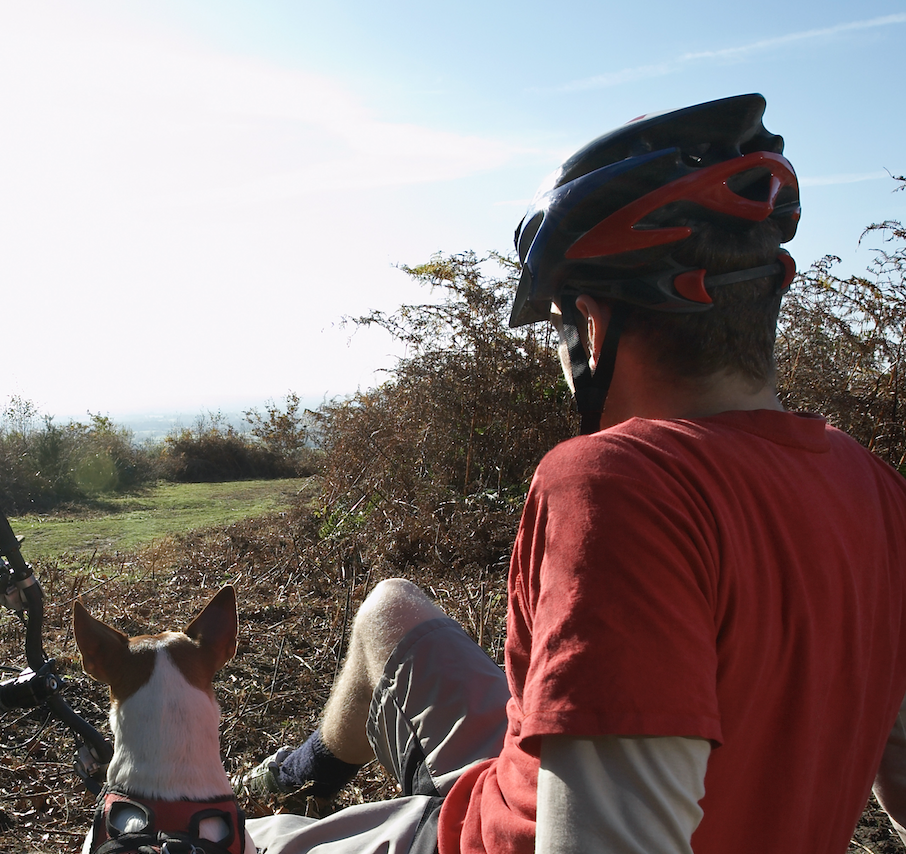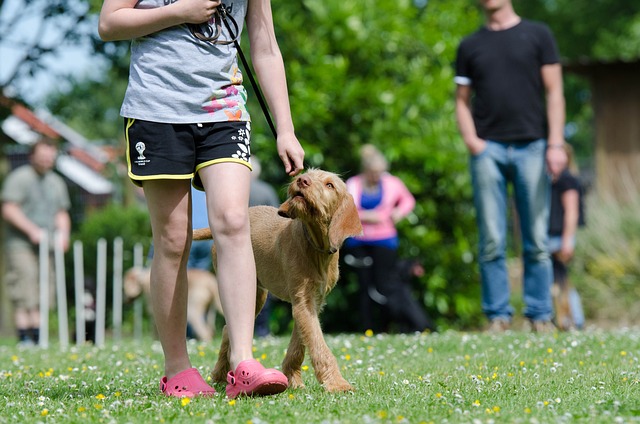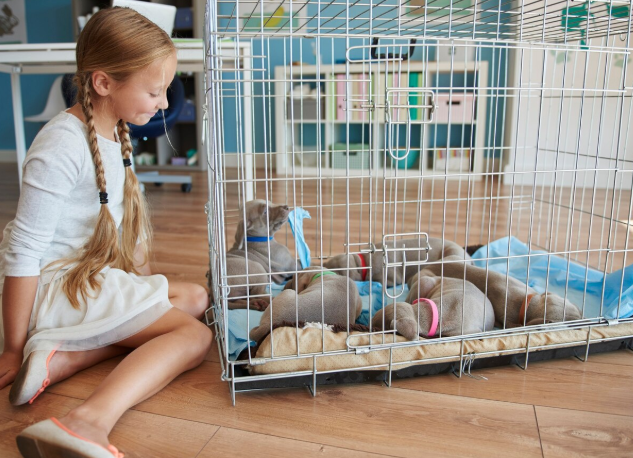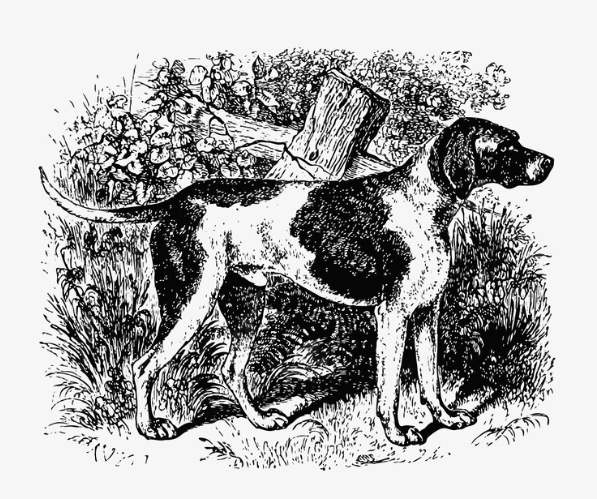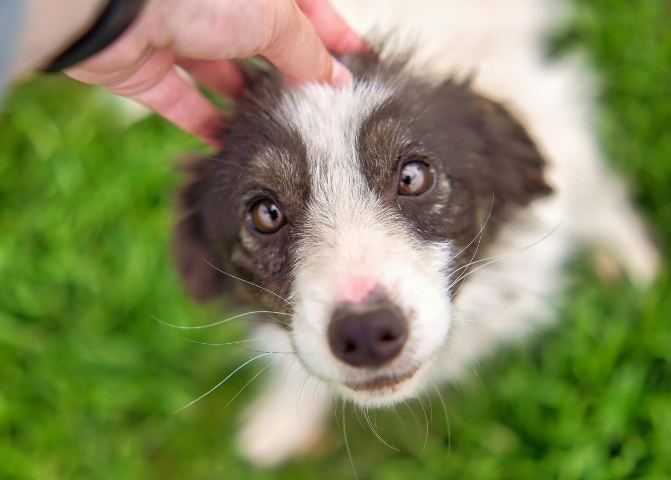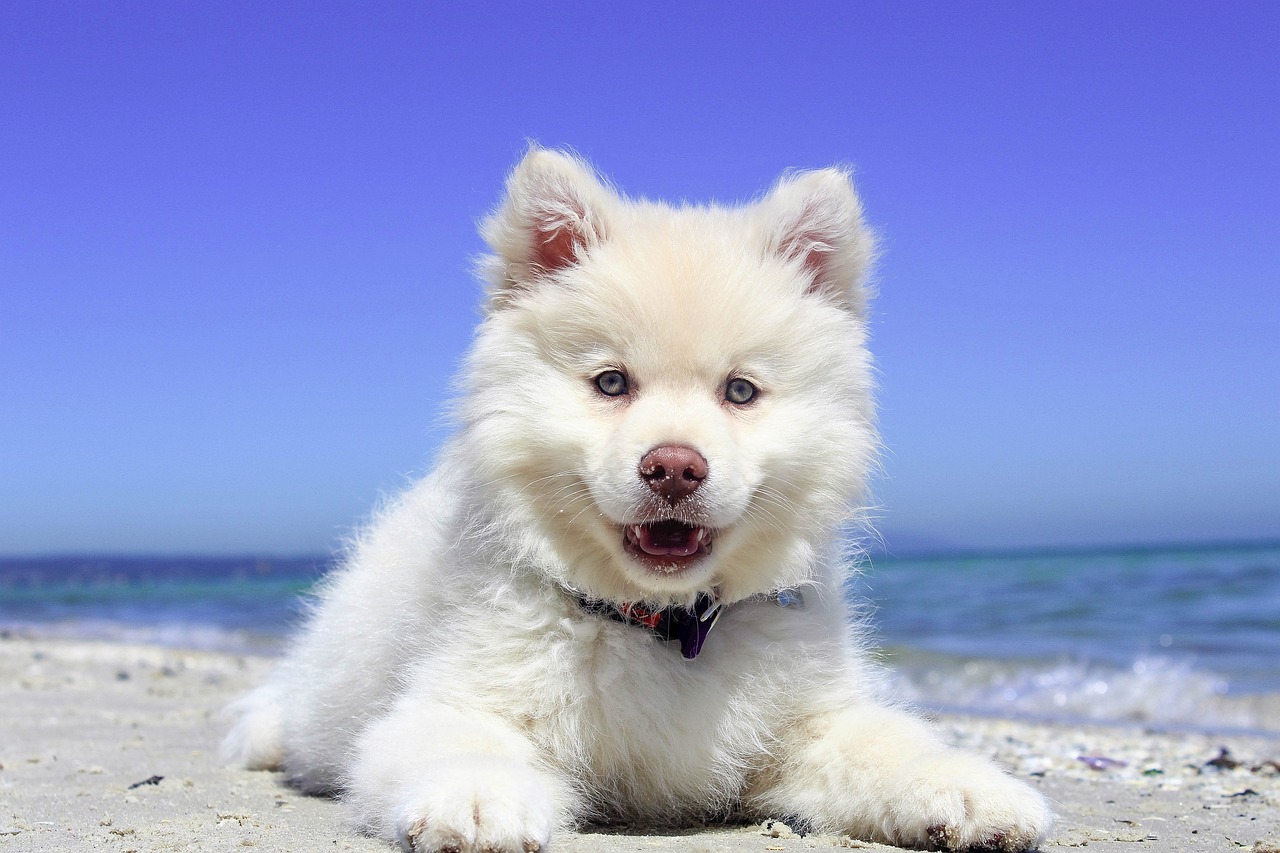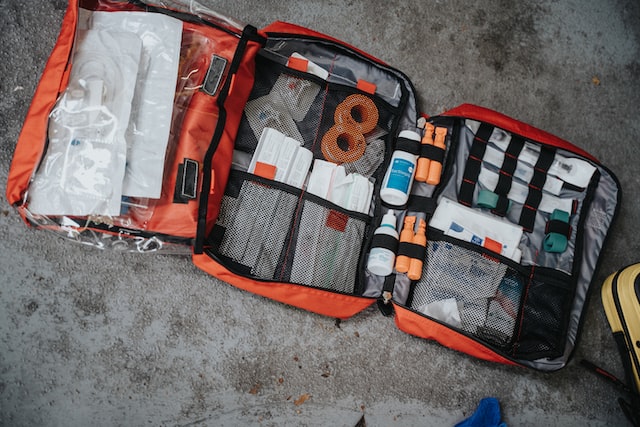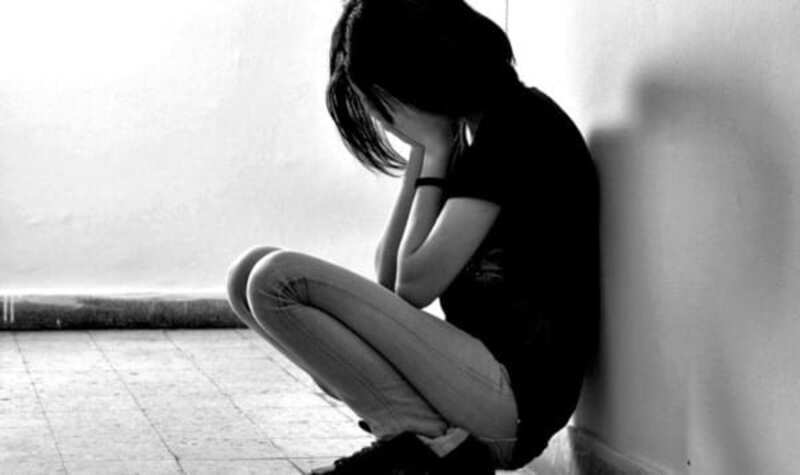
At the moment we bring home a pet, we do not welcome “just a dog” or “just a cat”, but a new family member. The role that pets play in our life is immense- they provide us with companionship, love, make us more organized and disciplined due to the schedule we need to follow, make us more active, and improve our health. In general, we can say, that pets contribute to our physical and emotional well-being. Hence, the loss of our beloved pets is usually accompanied by strong emotions that sometimes we are unable to cope with. If we have lost not only a pet, but a service dog, who was a vital part of our lives and helped us on a daily basis, we may feel even more devastated.
Death is an inevitable part of the life cycle that we all will have to deal with at some point in our lives. The process of grieving after losing a pet, as well as the most healthy ways to cope with that process are important topics that concern all pet owners.
What You Should Know About the Process of Grieving
5 Stages of Grieving
When we lose our pet, it feels like we have lost a family member. We are likely to experience various emotions and go through different stages of grief. According to studies there are five stages of grief that we go through to deal with the loss of a beloved one, whether a person or a pet:
Denial, Anger, Bargaining, Depression, Acceptance
No Time Limitation
Since we have different life experiences, perceive the world and the events that take place differently, and we also have different emotional intensities, there are no common rules on how much time we need to overcome the process of grieving. Some of us may need a week or a month to cope with the grieving, while the process is likely to take a year or more for others. Also, we should learn to accept the situation, and deal with it properly, instead of trying to overcome it.
Do Not Rush Things
Do not try to accelerate the process of grieving in order to bring your life back to normal. Of course, that does not mean that you should immerse yourself in the process of grieving so much, that you neglect all other things happening in your life. No! However, it is important that you give yourself time to heal.
Do Not Ignore Your Pain
Similar to the point above, ignoring the pain that we are feeling, is not a healthy way to deal with it. Pretending that a certain event did not happen or that it did not affect us at all, may be a good decision in the short term, but this kind of strategy will definitely worsen things in the long term. The more we are trying to press our emotions, the more intense they will overwhelm us at some point in the future without even expecting it.
Do Not Feel Ashamed
Some people may be unable to understand how exactly you are feeling. They may have not experienced the death of their pet, or just consider pets as regular animals, whose death is not supposed to affect us so much. Do not be ashamed of what you are feeling and do not expect everybody to understand these feelings. As we mentioned above, we perceive the world differently, we have different emotional intensities, and develop different types of bonds with other living creatures during our lifetime.
Do Not Try to Find a Replacement Immediately
It is a common mistake, that most of us make when trying to forget a traumatizing event. Getting a new pet as soon as our beloved friend has passed, will not solve the issue. And the issue is our inability to cope with these events. There is a popular quote of Epictetus: “It's not what happens to you, but how you react to it that matters”. To deal with the core of an emotional problem, we need to face it.
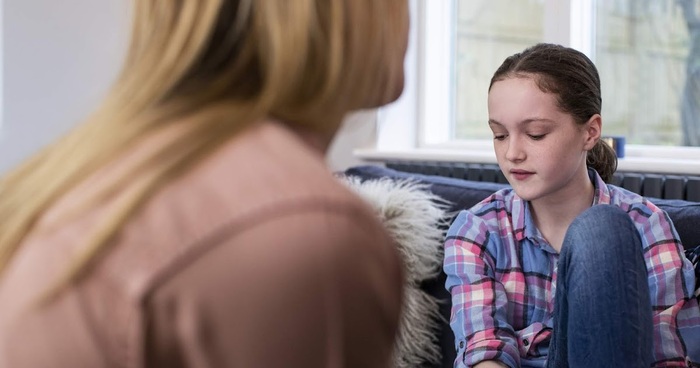
Tips That May Help You Cope With the Situation
Lead an Open Conversation
Talking to your family members or close friends and letting them know how you feel, may alleviate the pain. They may feel the same way as you, but just to not know how to express it. Leading an open conversation about what happened and sharing your pain, will make you feel better.
Pay Your Last Respects to Your Pet
You may want to make a ceremony where you and your family members will be able to honor your pet’s memory. Having the opportunity to say a last goodbye to your beloved paw friend, may help you have closure.
Clear All Questions
If your pet died due to an illness and certain aspects of the course of the disease remained unrevealed, we would recommend that you contact your pet’s veterinarian and clear all the questions that may trouble you. That way you will be able to regain your inner peace at least a bit.
Create a Memorial
You can create a memorial book featuring the favorite photos of your pet, that display moment of happiness and joy. Every time you look at the photo album, you will remember the precious moments you spent with your paw friend. Also, you can be calm that your pet had lead a wonderful life due to the effort you put and the time you invested. Another thing you can do to memorialize your pet is to plant a three or put a plague in your yard in their honor.
Make a Donation
It may be difficult for you to part with your pet’s favorite toys and items. However, when you donate some of them to shelters and rescues, you will help the teams engaged in taking care of rescue animals, provide them with better life conditions. Helping other animals, is likely to develop feelings of calmness and love and provide a sense of purpose.
Do Not Neglect Yourself
Regular walks, joyful games, hiking, swimming, wonderful time in the park or on trips…having a pet goes hand in hand with different activities and help us socialize. After the loss of our pet, we should not forget about all the pleasant things we used to enjoy. Do not let yourself go with the flow and neglect your physical and emotional health. Regular exercises or even just walks in the neighborhood will not only be beneficial for your tone and health, but also will make you calmer and help you clear your mind.
Do Not Neglect Your Family Members and Pets
Based on the life stage you are currently in, you may have children and your own family and take care of more than one pets too. Do not let your emotions prevent you from showing your love and care to your family members and pets. Do not forget, that they still need you and rely on you, and will support you during the process of grieving.
Talk With Friends Who Also Lost Their Pet
Talking to someone, who also has experienced a loss of a beloved pet, may help you feel understood and mitigate the feeling of loneliness. You may get some valuable pieces of advice from people who already went through this process and managed to move forward.
Talk to a Professional
If you do not think that your family or friends can understand the way you feel and help you go through this, you can consult a therapist. Consult with a mental health professional may address your emotions properly and help you deal with symptoms of depression. Therapeutic consultation will have a lot of
benefits not only for you, but for your children as well.
Children and the Process of Grieving
Many parents try to protect their children by not letting them be a part of the process of grieving or by trying to pretend that nothing important has happened. Despite the good intentions of those parents, their actions may have the opposite effect on their children. Children grieve as well, especially after their lost a loyal friend.
Talk to Your Children
We would recommend that you talk to your children directly and explain them that death is a natural part of the life. Your child may feel guilty and blame itself for the death of your pet. If you explain to them that they did not do anything wrong, they may feel better. Of course, you know your children best and can evaluate the most proper way and time to talk to them.
Let Your Children Be Part of The Process
Let your child attend the funeral of your pet or participate in making a photo album or planting a tree in their honor. Do not ignore them, when they try to talk to you.
Respect Your Child’s Feelings
Even if the death of your family pet does not affect you emotionally too much, it may have a strong negative effect on your child. You should not try to tell your child how to feel or make them feel ashamed or weird due the emotions they are currently experiencing. The best thing you can do is to acknowledge and respect their feelings.
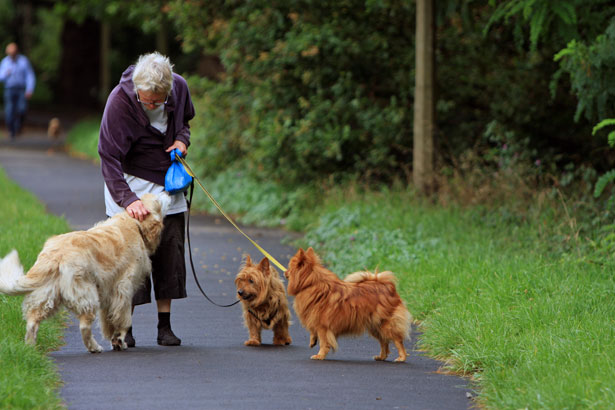
Seniors and the Process of Grieving
It may be even harder for seniors to cope with the death of a beloved pet. The process of getting older is accompanied by loss of family members, friends, deterioration of health, and increasing the feeling of loneliness. Pets play an essential role in the lives of many seniors worldwide, providing them with sense of purpose, love, helping them being active and mitigating the feeling of isolation. The loss of a pet may be experienced by older adults as a loss of the most valuable friend and companion, especially if they live alone.
We would like to give some tips that may help the elderly cope with the death of their pet.
Do Not Isolate Yourself
You should try to stay connected with your family and friends as much as possible. Do not spend your days at home alone. It will be beneficial for you to go outside for a walk, and maintain your contacts as much as possible. Regular conversations will help you stay positive and prevent you from giving in to depression and other mental conditions.
Do Not Stop Enjoying Life
You can engage in activities that make you feel happy and fulfilled. These activities can include finding a new hobby or taking time for a neglected one, enrolling in an interesting course, participating in a volunteering program...etc. There are many things to do that will bring you joy, you just need to give it a try.
Stay Active
If your pet was the main motivator in your life to stay active, you should not stop exercising or taking care of your physical health after their loss. You can find a sport, that you like and that is safe for you to play and keep maintaining your health. If you are not sure what sport will be most beneficial for you, we would recommend that you consult your doctor for advice.
The loss of a pet can be very difficult to handle, as it means a loss of a loyal and loving friend and even a family member. It is important to understand, that such events are inevitable and the best thing we can do is to learn to deal with them properly.



